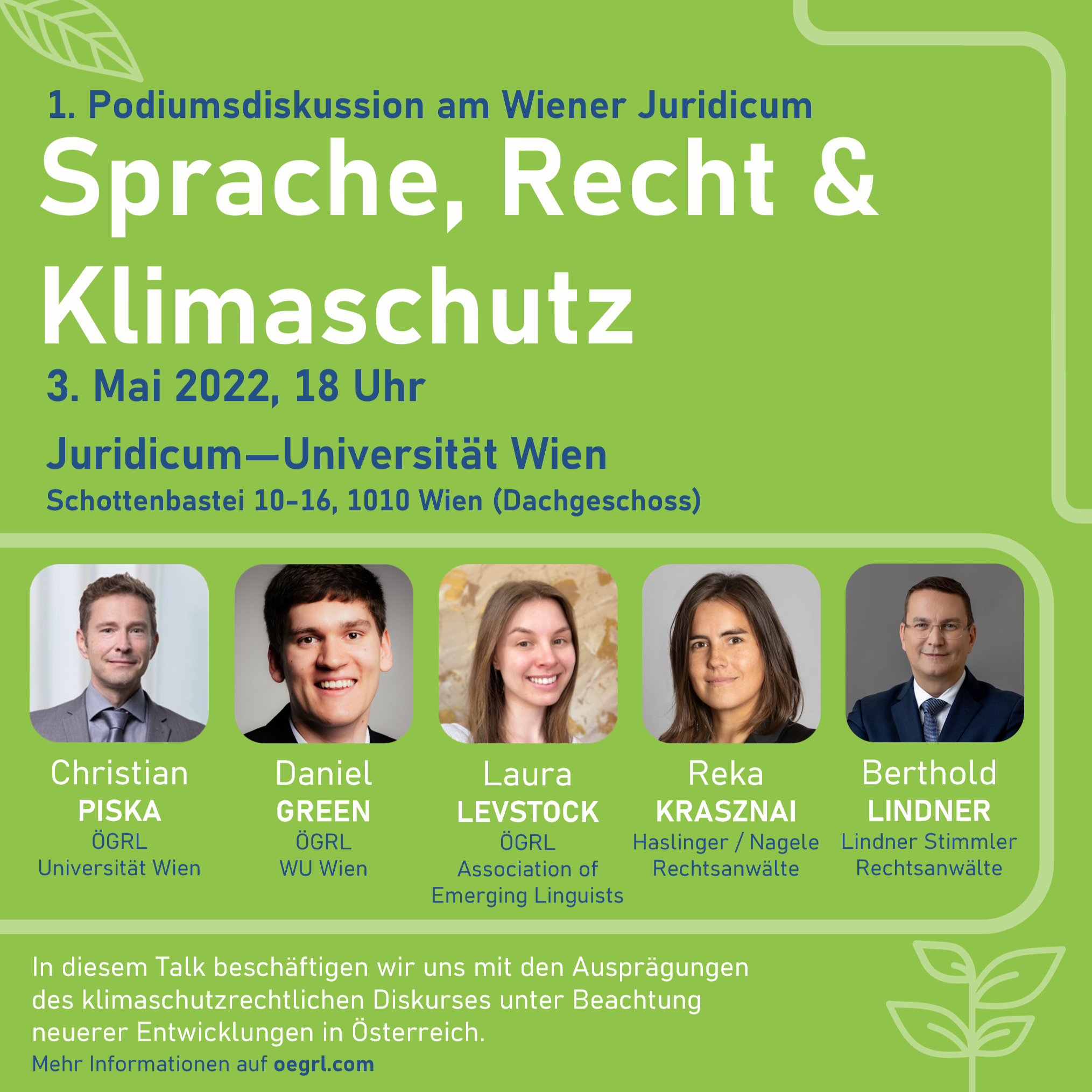
Past events - 2022
Panel discussion:
Language, Law & Climate Protection
____________________________________________________________________________________
3rd May 2022 // 6pm (CET) // Juridicum (University of Vienna) – Schottenbastei 10-16, 1010 Vienna (top floor)
This event was in German
Sprache spielt im Umweltrecht
With Christian Piska (AALL; University of Vienna), Daniel Green (AALL; Vienna University of Economics and Business), Laura Levstock (AALL; Association of Emerging Linguists), Reka Krasznai (Haslinger / Nagele Rechtsanwälte) and Berthold Lindner (Lindner Stimmler Rechtsanwälte).
Download the event poster – click here.



e-Talk: Language, Law & The Brain
____________________________________________________________________________________
24th January 2022 // 7pm (CET) // YouTube Live
With Franz R. Schmid (Pompeu Fabra University Barcelona) and Daniel Green (AALL). Moderation by Katie Bray.
Watch the event here: https://youtu.be/vb8uux0VKKM
Download the event poster here.
Event text - click here
Lawyering is to a large extent languaging. Formal truth as textualised in the course of criminal trials corresponds to a certain social reality by means of language. However, language is sketchy, it is at times insufficient to express the complexity of our thoughts. For instance, optical illusions show us that our brain may process information from the external world differently, that what is perceived as facts may not be fixed at all. Does this mean the application of law is, at least in part, inherently flawed, nothing but an illusion forged in our brain to make the world around us appear plausible?
Ronald Dworkin (2009) asks
[i]s there truth to be had? Are we contesting what the truth is? That is certainly, to use a grand phrase, the phenomenology of most lawyers. We read, we puzzle, we puzzle again, then we come to a judgement. And it’s a judgement not a choice. It doesn’t feel like a preference. It feels like a judgement about what the truth is. Imagine a judge who’s just sentenced a villain to jail or perhaps worse and then says at the end of his opinion. Of course that’s the way I see it, that’s my opinion, that’s the way I read it, but there are other interpretations and they are equally good. [1]
Truth is a challenging concept in all areas of life. In criminal law what is perceived and constructed as plausible, as true, may form the basis of real-life legal consequences for individuals. Can we trust the brain to do justice, to tell right from wrong and to apply the law systematically in the process of language interpretation? Or must we admit that illusions, biases, attitudes, or other extraneous factors, consciously or not, cloud our perception of the world to an extent that truth and justice are impossible to attain?
Indeed, research has shown that the wording of a presented problem can alter how to reason about and subsequently influence the decisions on how to solve it. [2] Not only can language impact future actions, it can also have an impact on memories and lead to misidentifications of what was previously seen. [3]
In this e-Talk we will discuss the fascinating relationship between language, law and the brain and seek answers to uncomfortable questions in law and legal practice. We will not provide absolute truths, but instead a lively discussion as to how the comprehension and production of language, be it spoken, written, or signed, may have a bearing on legal practice.
The Austrian Association for Legal Linguistics (ÖGRL/AALL) was founded in Vienna in May 2017 and deals with the contemporary challenges of legal language in various contexts.
[1] Dworkin, Ronald. 2009. “Is there truth in interpretation: law, literature and history”. Frederic R. and Molly S. Kellogg Biennial Lecture on Jurisprudence. https://www.youtube.com/watch?v=742JyiqLhuk (12 Nov. 2021).
[2] Thobideau, Paul H. and Boroditsky, Lera. 2011. “Metaphors We Think With: The Role of Metaphor in Reasoning”. PLoS ONE 6(2): 16782. doi:10.1371/journal.pone.0016782
[3] Schooler, Jonathan W. and Engstler-Schooler, Tonya Y. 1990. “Verbal overshadowing of visual memories: Some things are better left unsaid”. Cognitive Psychology 22(1):37-71. doi.org/10.1016/0010-0285(90)90003-M
